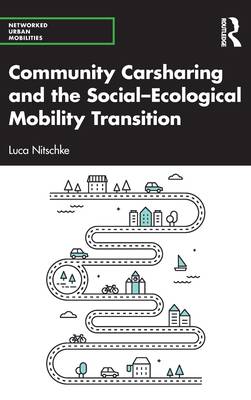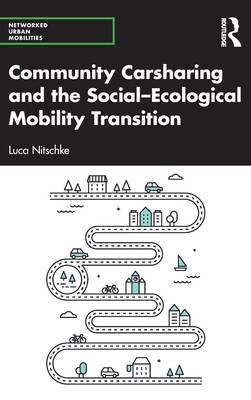
- Retrait gratuit dans votre magasin Club
- 7.000.000 titres dans notre catalogue
- Payer en toute sécurité
- Toujours un magasin près de chez vous
- Retrait gratuit dans votre magasin Club
- 7.000.0000 titres dans notre catalogue
- Payer en toute sécurité
- Toujours un magasin près de chez vous
Community Carsharing and the Social-Ecological Mobility Transition
Luca NitschkeDescription
This book investigates how practices of community carsharing are influencing everyday mobility. It argues that hegemonic practices of automobility are reconfigured through practices of community carsharing, thereby challenging capitalist mobilities in the realm of everyday life.
Through a detailed empirical study of practices of community carsharing and its practitioners in the rural regions around Munich, Germany, this book reveals how the practice contributes to the emergence of alternative automobile practices, meanings, identities and subjectivities. It also explores the embedding of automobility into its ecological context, the connection of function and community in practices of community carsharing and the changing of ownership relations through a process of commoning mobility. This reconfiguration of everyday practices of automobility takes place through processes of everyday resistance, re-embedding and commoning, and ultimately results in the emergence of an alternative mobility culture, thereby facilitating the dissemination of an alternative common sense of community carsharing.
This book on community carsharing provides a valuable insight into carsharing in rural settings and exemplifies how carsharing specifically, and sharing mobilities in general, can contribute to a social-ecological mobility transition. The work will be of particular interest to scholars and practitioners working in mobility studies and mobilities.
Spécifications
Parties prenantes
- Auteur(s) :
- Editeur:
Contenu
- Nombre de pages :
- 228
- Langue:
- Anglais
- Collection :
Caractéristiques
- EAN:
- 9781032205885
- Date de parution :
- 14-07-22
- Format:
- Livre relié
- Format numérique:
- Genaaid
- Dimensions :
- 152 mm x 229 mm
- Poids :
- 494 g

Les avis
Nous publions uniquement les avis qui respectent les conditions requises. Consultez nos conditions pour les avis.






